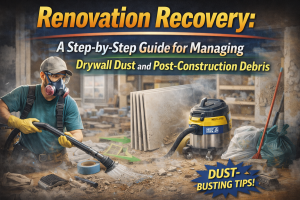In the UK, every tenant deserves to live in a home that is safe, well-maintained, and free from health hazards. Unfortunately, many renters still face serious housing issues that go unaddressed by landlords—ranging from persistent damp and mould to broken heating systems and faulty electrics. These problems not only disrupt daily life but also pose a significant risk to your physical and emotional well-being.
If you are living in poor housing conditions and your landlord is ignoring your repair requests, help is available. The Housing Disrepair Team UK offers dedicated legal support to tenants across England and Wales, ensuring that landlords are held accountable and tenants receive the compensation they deserve.
What Is Housing Disrepair?
Housing disrepair occurs when a rented property falls into a poor state due to a landlord’s failure to carry out necessary maintenance and repairs. The law requires landlords to keep their properties in good repair throughout the duration of a tenancy. Failure to do so may entitle tenants to legal action and financial compensation.
Common housing disrepair issues include:
- Damp, mould, and condensation
- Water leaks and plumbing issues
- Unsafe or broken heating systems
- Electrical hazards and faulty wiring
- Broken windows or doors
- Structural defects (e.g., cracked walls, ceilings, or floors)
- Pest infestations (e.g., rodents or insects)
These problems are not just an inconvenience—they can be life-altering, especially for families, the elderly, or those with pre-existing health conditions.
Landlord Responsibilities
By law, landlords are responsible for:
- Maintaining the structure and exterior of the property
- Ensuring that heating and hot water systems are working properly
- Keeping the electrical system safe
- Addressing issues with damp and mould caused by disrepair
- Dealing with any infestations if caused by structural faults or damp conditions
Under the Homes (Fitness for Human Habitation) Act 2018, properties must be safe, healthy, and free from anything that could seriously harm the tenant. If your landlord fails to act within a reasonable time after you report a problem, they may be in breach of this law.
Your Rights as a Tenant
Tenants have a legal right to live in a habitable property. This includes:
- Prompt repairs of reported issues
- Protection from retaliation (your landlord cannot evict you for asking for repairs)
- Freedom from living in hazardous or unhealthy conditions
- Legal support if your landlord refuses to cooperate
If your landlord ignores your requests or only makes temporary fixes, you can escalate the matter by pursuing a housing disrepair claim with the help of experienced professionals.
Why Housing Disrepair Matters
Living in substandard housing affects more than just your comfort. It can lead to:
- Physical health problems: Mould and damp worsen asthma, eczema, and respiratory infections.
- Mental health issues: Prolonged stress caused by unsafe living conditions can lead to anxiety, depression, and sleep disorders.
- Financial loss: Damage to your belongings or higher energy bills from poor insulation or broken heating systems.
- Disruption to daily life: Including time off work, medical appointments, and children’s education.
Making a Housing Disrepair Claim
If your landlord hasn’t fixed the problems after you’ve reported them, you may be eligible to claim:
- Compensation for inconvenience and discomfort
- Repair work carried out at no cost to you
- Medical expenses if you’ve become unwell due to disrepair
- Replacement costs for damaged belongings
- Legal fees, if pursued through a no win, no fee agreement
The Housing Disrepair Team UK can assist you through every stage of the claims process—starting with a free assessment.
What You Need to Make a Claim
To support your claim, it’s important to keep a record of:
- Written communications with your landlord
- Photographs or videos of the disrepair
- Receipts for damaged items or medical costs
- Statements from your GP or health professionals
- Surveyor’s report, if available
With this evidence, legal experts can build a strong case and seek fair compensation for you.
No Win, No Fee Housing Disrepair Help
Most reputable firms operate on a no win, no fee basis. This means you don’t have to worry about upfront legal costs—and you only pay if your case is successful.
The Housing Disrepair Team UK works on this model, offering you risk-free legal advice and representation. Whether you’re renting from a local council, housing association, or private landlord, they have the experience to ensure your rights are protected.
How Long Do You Have to Claim?
- General housing disrepair claims: up to 6 years from the date the issue started
- Personal injury claims due to disrepair: 3 years from the date of illness or injury
However, it’s always advisable to act sooner rather than later. Early action prevents further damage and ensures your case is backed by timely evidence.
Don’t Suffer in Silence—Take the First Step Today
Too many tenants continue to live in dangerous or uninhabitable homes because they fear eviction or don’t know their rights. You don’t need to suffer in silence. You are legally entitled to a safe, healthy place to live—and to take legal action if that’s not being provided.
The Housing Disrepair Team UK offers the expert support you need to restore your home, protect your family, and receive fair compensation. With a friendly and professional team, they make the legal process simple and stress-free.









